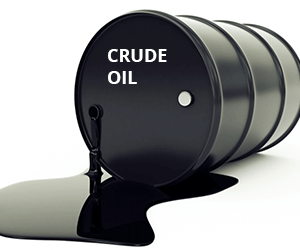Oil prices jumped on Thursday, with Brent rising above $100 a barrel for the first time since 2014, after Russia attacked Ukraine exacerbating concerns about disruptionsto global energy supply.
Russia launched an all-out invasion of Ukraine by land, air and sea, the biggest attack by one state against another in Europe since World War Two.
Brent crude rose $7.07, or 7.3%, to $103.91 a barrel at 0944 GMT, and U.S. West Texas Intermediate (WTI) crude jumped $6.43, or 7%, to $98.53 a barrel.
Brent and WTI hit their highest levels since August and July 2014, respectively.
"Russia is the third largest oil producer, and second largest oil exporter. Given low inventories and dwindling spare capacity, the oil market cannot afford large supply disruptions," UBS analyst Giovanni Staunovo said.
"Supply concerns may also spur oil stockpiling activity, which supports prices," he added.
Russia is also the largest provider of natural gas to Europe, providing about 35% of its supply.
The United States and Europe have promised the toughest sanctions on Russia in response.
"It's not just geopolitical risk that is the problem but the further straining of supply," OCBC economist Howie Lee said.
"Russian oil supply will disappear overnight if faced with sanctions... and OPEC can't produce fast enough to cover this gaping hole."
Global oil supplies remain tight as demand recovers from pandemic lows.
Underscoring the tight market, premiums on crude contracts for loading in one month over contracts for loadings in six months , a metric closely watched by traders, hit a new record high at $11.55 per barrel.
"This growing uncertainty during a time when the oil market is already tight does leave it vulnerable, and so prices are likely to remain volatile and elevated," said Warren Patterson, head of ING's commodity research.
Analysts believe Brent will likely remain above $100 per barrel until significant alternative supplies become available, for example from OPEC, U.S. shale, or Iran.
The United States and Iran have been engaged in indirect nuclear talks in Vienna that could lead to the removal of sanctions on Iranian oil sales.
Iran's top security official Ali Shamkhani tweeted on Thursday that it is possible to achieve a good nuclear agreement with Western powers due to significant progress made in negotiations.
Analysts are warning of inflationary pressure on the global economy from $100 oil, especially for Asia, which imports most of its energy needs.
"Asia's Achilles heel remains its vast import needs for energy, with surging oil prices bound to take a hefty bite out of income and growth over the coming year," HSBC economist Frederic Neumann said.
Latest Stories
-
Chief of Staff champions exercise culture to promote healthy living among Ghanaians with ‘Walk with Julius’ initiative, calls on corporate Ghana to join JoySports Invitational Tournament
21 minutes -
NSMQ 2025: St Peter’s SHS claims 4th Eastern Regional title after intense showdown with Okuapeman and Pope John’s
33 minutes -
Tera Hodges confirmed as speaker for Africa’s Women’s Day Virtual Celebration 2025
48 minutes -
Gospel artiste Terry Johnson releases soulful new single “Ohe yɛ naakpɛɛ”
2 hours -
Nearly 200 Ghanaian students stranded as gov’t owes University of Memphis $3.6m
2 hours -
At least 14 dead in South Korea floods and landslides
3 hours -
You’ve kept to the objective – Chief of Staff Julius Debrah hails MGL
3 hours -
Cape Coast hosts final leg of National Talent Identification Program for Para athletes
4 hours -
ESG and Boardroom Decisions: How Non-Financial Drivers Shape Financial Outcomes
5 hours -
Robust anti-laundering fight critical for regional stability – Veep
9 hours -
Car ploughs into crowd outside LA nightclub, injuring 30
10 hours -
GNAT President calls for parliamentary legislation to protect reinstated PTAs
12 hours -
NPP Abanga blames his NDC twin brother for his misfortune
13 hours -
NPP Abanga breaks ranks to shield NDC twin brother in ‘galamsey’ accusations
14 hours -
Saminu Abdul Rasheed smashes national record again with 9.84s sprint in Georgia
14 hours

